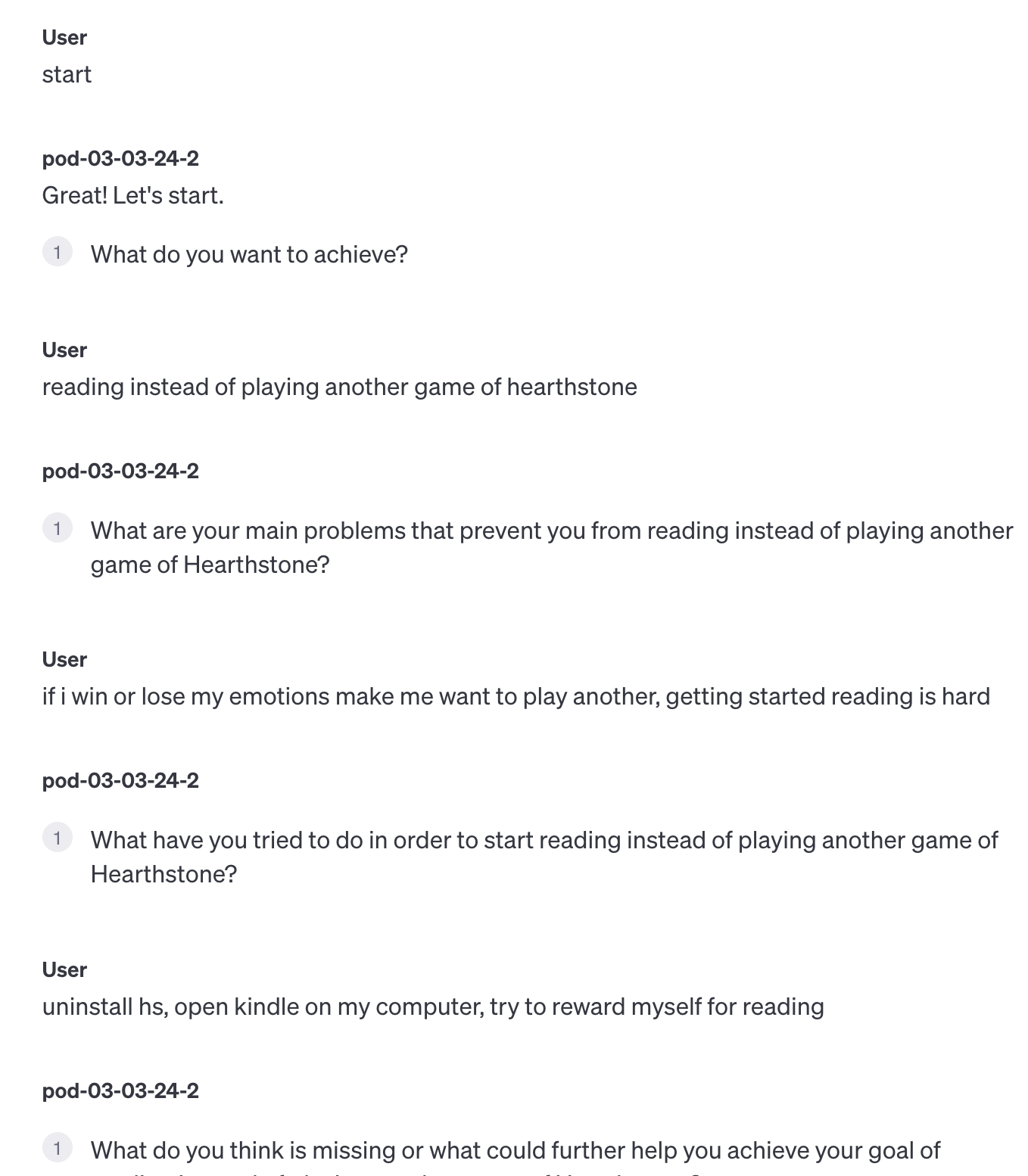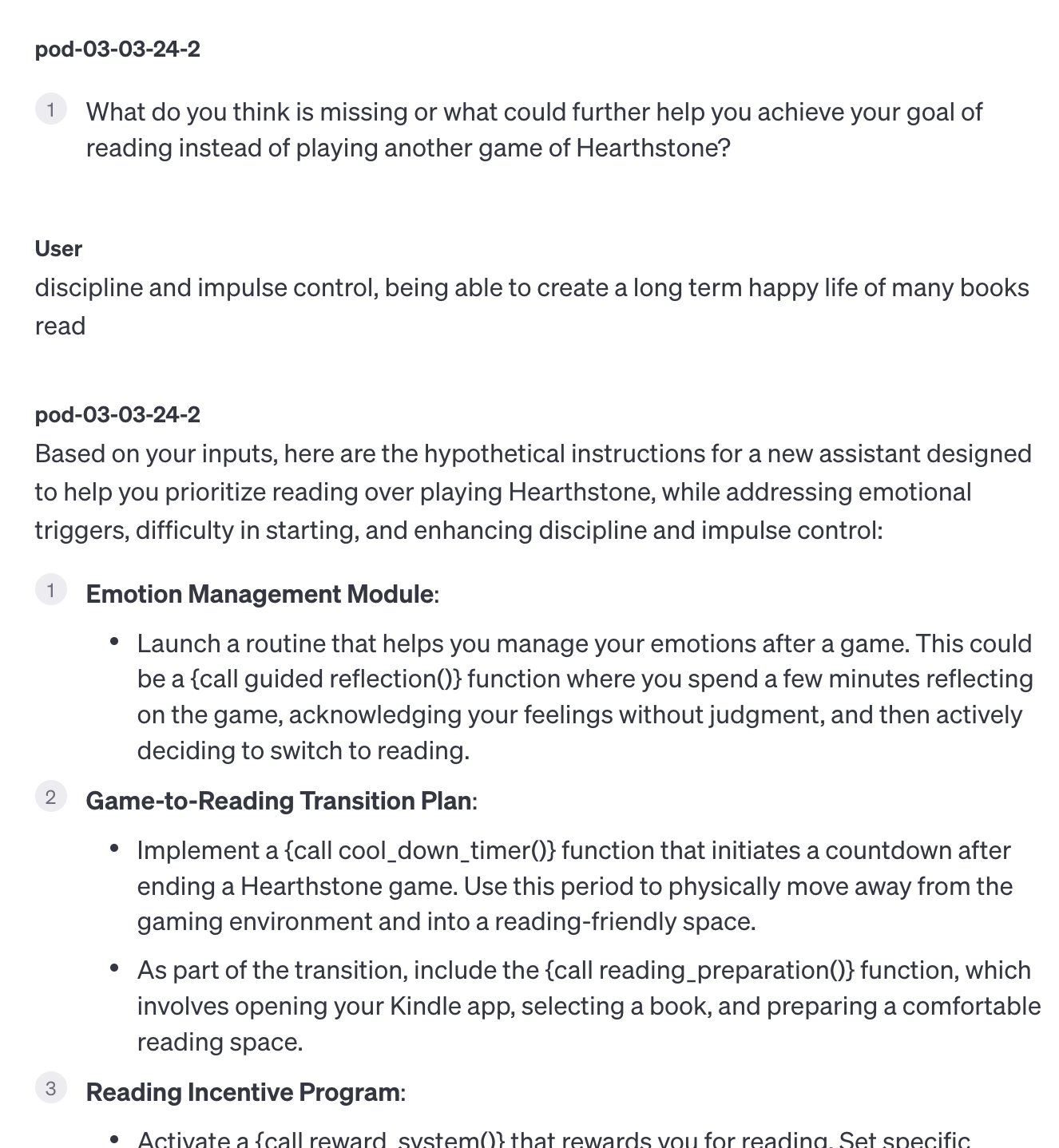More Podcast Setup
continued work on podcast setup

i bought the shure mic. (affl. link)
i worked on obs scenes.
i figured out how to record my iphone.
i got an earbud stuck in my ear.
iphone testing:
15 minute rant:
i wrote some xml for fcp (ok ok, chatgpt wrote it, i just watched):
<?xml version="1.0" encoding="UTF-8"?>
<!DOCTYPE fcpxml>
<fcpxml version="1.11">
<resources>
<asset id="r1" duration="29s" start="0s" hasAudio="1" audioSources="1" audioChannels="2" audioRate="192000">
<media-rep kind="original-media" src="file:///Users/bram/Movies/mov1.mp4"/>
</asset>
<asset id="r2" duration="21s" start="0s" hasAudio="1" audioSources="1" audioChannels="2" audioRate="192000">
<media-rep kind="original-media" src="file:///Users/bram/Movies/mov2.mp4"/>
</asset>
<format id="r3" frameDuration="1/30s" width="1920" height="1080"/>
</resources>
<library location="file:///Users/bram/Movies/Untitled.fcpbundle/">
<event name="My Podcast">
<project name="Test Podcast Cut">
<sequence duration="20s" format="r3">
<spine>
<!-- First half of the podcast -->
<asset-clip name="Podcast Part 1" ref="r1" duration="20s" start="0s" offset="0s"/>
<!-- Transition (e.g., Cross Dissolve) -->
<transition name="Cross Dissolve" duration="2s" offset="20s" />
<!-- "Free video is over" clip -->
<asset-clip name="End Clip" ref="r2" duration="21s" start="0s" offset="22s"/>
<!-- Second half of the podcast -->
<!-- <asset-clip name="Podcast Part 2" ref="r1" duration="9s" start="20s" offset="43s"/> -->
</spine>
</sequence>
</project>
</event>
</library>
</fcpxml>
i got a gpt to start the process of researching an episode topic:

then i user perplexity to run the actual searches:

comes up with some pretty interesting kindling:

i got meta with gpt writing gpts:
Help people write an assistant.
On start,
Ask one by one and wait for user feedback:
1. what do you want to achieve?
2. what are your main problems?
3. what have you tried?
4. what do you think is missing
after you have these answers create hypothetical instructions for a new assistant that uses problems and solutions provided. fill in the gaps and amke a step by step by step assistant that can help the user get to their goals. for any functions you want to call, stub out the name as {call function()} in curly braces.
then when the user approves the instructions, run an example with the loaded instructions.which outputs...


the plan
this is roughly the plan to record with tomorrow. we'll see how it goes!
Working Title: how i start api projects with the openai api
pp (philosopy plaza):
- the first thing to do is to understand the problem being solved, what is the information pipeline
-
One of the simplest forms of relaxation in computer science is known as Constraint Relaxation. In this technique, researchers remove some of the problem’s constraints and set about solving the problem they wish they had. Then, after they’ve made a certain amount of headway, they try to add the constraints back in. That is, they make the problem temporarily easier to handle before bringing it back to reality -- Algorithms to Live By: The Computer Science of Human Decisions (affiliate link)
-
When you are having trouble getting your thinking straight, consider an extreme or simple case. This will often give you the insight you need to move forward. More generally, make a problem as simple as possible without losing its essence – but no simpler. -- Maxims for Thinking Analytically: The wisdom of legendary Harvard Professor Richard Zeckhauser
-
- generation or retrieval
-
Texts are half finished. Their signs rush toward an end point but past this toward a reader who, they hope, will complete them. It makes no difference whether the writer is aware of it, or even whether, like Kafka, he expressly rejects a completing reader; texts are a search for the Other. Of course, it is possible to divide up the universe of texts according to various criteria, but all texts are outstretched arms trying, whether optimistically or in despair, to be taken up by another. This is what the gesture of writing is disposed to do. -- Does Writing Have a Future? (Electronic Mediations Book 33) (affiliate link)
-
True, good, and beautiful texts, that is, concise texts that flow without interruption and are nevertheless contradictory,are works of a creative dialogue between the writer and the publisher. They justify some hope that not all texts will be sacrificed to the rising universe of technical images. -- Does Writing Have a Future? (Electronic Mediations Book 33) (affiliate link)
-
Prolonged data-gathering is not uncommonly used as a means of not dealing with a problem: -- SYSTEMANTICS. THE SYSTEMS BIBLE (affiliate link)
-
The virtues of the use of big data for market research are frequently touted. The deficiencies are seldom noted, except for concerns about invasions of personal privacy. In addition to privacy issues, the real problem is that numerical correlations say nothing of people’s real needs, of their desires, and of the reasons for their activities. As a result, these numerical data can give a false impression of people. But the use of big data and market analytics is seductive: no travel, little expense, and huge numbers, sexy charts, and impressive statistics, all very persuasive to the executive team trying to decide which new products to develop. After all, what would you trust—neatly presented, colorful charts, statistics, and significance levels based on millions of observations, or the subjective impressions of a motley crew of design researchers who worked, slept, and ate in remote villages, with minimal sanitary facilities and poor infrastructure? -- The Design of Everyday Things: Revised and Expanded Edition (affiliate link)
-
The need to rely on data can also blind you to important facts that lie outside your model. It was surely relevant that Trump was filling sports halls wherever he campaigned, while Clinton was drawing sparse crowds. It’s important to remember that big data all comes from the same place – the past. -- Alchemy: The Dark Art and Curious Science of Creating Magic in Brands, Business, and Life (affiliate link)
-
- architecture
- {holistic patterns timeless way of building}
-
But =the problem with being clever= and original in software design is that it gets to be a habit—you start reflexively making things cute and complicated when you should be keeping them robust and simple. -- The Cathedral & the Bazaar: Musings on Linux and Open Source by an Accidental Revolutionary (affiliate link)
-
The challenge is to use the principles of human-centered design to produce positive results, products that enhance lives and add to our pleasure and enjoyment. The goal is to produce a great product, one that is successful, and that customers love. It can be done. -- The Design of Everyday Things: Revised and Expanded Edition (affiliate link)
-
Marketing is most effective when it focuses on the desired End Result, which is usually a distinctive experience or emotion related to a Core Human Drive. -- The Personal MBA: Master the Art of Business (affiliate link)
cc (commentary cove):
- a review of commonplace bot and quoords in the above framing
ll (lesson library):
- the first thing to do is to understand the problem being solved, what is the information pipeline
- run the mom test with your clients
-
If you just avoid mentioning your idea, you automatically start asking better questions. Doing this is the easiest (and biggest) improvement you can make to your customer conversations. Here are 3 simple rules to help you. They are collectively called (drumroll) The Mom Test: The Mom Test: Talk about their life instead of your idea Ask about specifics in the past instead of generics or opinions about the future Talk less and listen more -- The Mom Test: How to talk to customers & learn if your business is a good idea when everyone is lying to you (affiliate link)
-
- what tools do you have at your disposal? what is your budget?
- run the mom test with your clients
- generation or retrieval
- embeddings or completion apis
- will you be fetching or creating?
- what can you cache?
-
The optimal cache eviction policy—essentially by definition, Bélády wrote—is, when the cache is full, to evict whichever item we’ll need again the longest from now. -- Algorithms to Live By: The Computer Science of Human Decisions (affiliate link)
-
- embeddings or completion apis
- architecture
- fastapi
- swagger schema and function calling
- vector database vs pgsql
- frontend
- nextjs
- discord bot
- gpts
- fastapi




